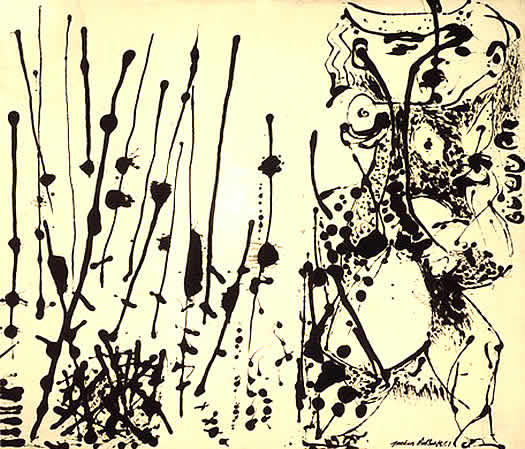I just got back from spring break in NYC, where I went to see the newly opened NeoIntegrity show (specifically,
"NeoIntegrity: The Comics Edition"), curated by Keith Mayerson, at MoCCA. Despite MoCCA's tight confines, the show is huge, including 250 or so artists from Winsor McCay, Harvey Kurtzman and Jack Kirby to, well, us! Designed to foreground the closeness and areas of overlap between comics and the gallery art world, the show also includes sequential and cartoon work from artists such as Peter Halley, Carol Dunham, H.C. Westermann, and many others. (
Here is a review of the first NeoIntegrity show, from 2007, which gives you a flavor of the curatorial approach.)
Here is the original art for my 2005 piece "Expedition to the Interior," right under Kirby!


(in the second picture you can also see, in the same row as the two top Kirbys, a Dr. Seuss cartoon; and, oh yeah, in the case next to them, those are puppets by Tim Burton for "Corpse Bride." Around the corner are a piece by Gary Panter and, above it, some drawings of Wild Things by Maurice Sendak. Nice company to be in!).
Unfortunately, I did not think ahead, so I didn't take close ups of Richard's and Mark's pieces, but here you can see them in the wider context of the walls on which they hang. Here are Richard's, in the center-left of the image--notice especially the Klee-like abstract comic on a dark background:

And here, in the bottom row to the right of the "Crawling Walling" piece, are prints of Mark's recent abstract comic which he posted a while ago on this blog:

This is more or less it for abstract comics (and members of this blog) in the show, but with more pieces by Panter, Victor Moscoso, R. Crumb, and Patrick McDonnell, the anthology is quite well represented. I say "more or less," because there is also this 1992 piece, titled "Narrative," by Peter Halley:

I mentioned here a while ago that Halley's paintings reminded me of comics. I did not know "Narrative" at the time, but I'd say this pretty much clinches it, doesn't it?



























